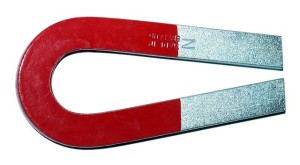
Are your headlines reader magnets?
Want more people to read your ads?
I’m assuming the answer is yes. Because if they don’t read, they ain’t gonna get interested in what it is you offer. And no readership and no interest means no purchase.
Ergo if you don’t get read, you don’t get paid.
So… How do you get people to read your dang ads, sales letters, landing pages, whatever?
Write a better headline!
These statistics have been trotted out so many times as to seem trite.
And yet, they’re still pretty dang accurate.
From David Ogilvy, 10X as many people read the headline as read the body copy of any ad.
From Jay Abraham, you can improve response to your copy 16X by writing a better headline.
Yadda, yadda…
And if your ad or sales letter doesn’t have a headline? Or if you’re scripting a sales call or a video or some other piece of multimedia? Don’t get caught up in that silly little detail. It’s the first thing you’re going to say that we’re talking about.
Or maybe you’re talking about an article — in this case you want a better title.
Or an email? The headline of an email is the subject line.
For simplicity’s sake, we call all of these things the headline…
So… How do you write a headline to get people to want to read more?
There are all sorts of ways you can “judge” a headline. I, for one, like to test my headlines using the 4U criteria from AWAI:
– Is it USEFUL?
– Is it URGENT?
– Is it UNIQUE?
– Is it ULTRA-SPECIFIC?
And these are definitely factors you can consider in writing and especially editing your headlines.
There are a handful of other similar lists you can use either to be inspired to create better headlines, to test your headlines against, or to use as guides for editing and revising your headlines.
But when it comes down to it…
There are just two things your headline really needs to do to win readership!
When all is said and done, if your headline does these two things right, you’re going to get a lot of readers…
— Piques their curiosity in a way that can only be answered by reading on, and…
— Promises a benefit that your target market wants…
Do these two things in your headline, and it will be harder for your reader to stop than to keep going.
But… You don’t have to do this in an amateurish way!
Just about the worst thing you can do is a “fill in the blanks” version of this.
[Curiosity provoking statement] [bridge word] [promise of benefit].
Or the other way around…
[Promise of benefit] [bridge word] [curiosity provoking statement].
This CAN work…
E.g. “Collect $50,000 per year back door copywriting income without writing a single word,” was a very effective headline for me early in my copywriting career.
And yet…
There are so many more interesting ways to pull this off!
How about this on-page headline for a VSL that has done gangbusters sales in the last year…
“Mysterious Russian Satellite Object 2014-28E Could Mark ‘End Times’ For America…
“‘Could kill 9 pf 10 Americans through starvation, disease, and societal collapse… With perhaps no hope of eventual recovery, as the society and population probably could not survive for even one year.’ – Dr. Peter Vincent Pry, Testimony given before Congress, May 8, 2014”
What the… ?!
Where’s the benefit in that?
Well, it’s an implied benefit. Even though the headline/subhead focuses on the bad, the assumption is that there will be a good delivered as part of the message. By understanding the bad and its implications, there will be a better chance of survival.
And as for curiosity? Well, what is that mysterious Russian satellite?
Or, consider this classic…
“They laughed when I sat down at the piano, but when I started to play…”
The curiosity comes from a story that’s started, but not finished. That’s a great thing to do in your headline. If a story is well-told, we have a natural and very human desire to want to know the ending. So the simple act of starting a story can pique the curiosity of your prospect.
But what about that benefit? Well, again, it’s somewhat veiled… It sounds like the spokesperson is known for NOT being any good at piano, maybe someone who jokingly plays horribly at parties or other gatherings. But will they astonish their doubters? And how? Well, the implication is that suddenly they will be able to play piano — and wouldn’t that be nice?
One more…
“Do you make these mistakes in English?”
This was the longest-running ad of all time, as far as I know. So the headline is worth understanding.
How does it pique curiosity? Well, what mistakes is it referring to? I have to know!
And the benefit? Simple: a mistake known is a mistake that can be corrected.
We could go on forever, but press time looms…
Here’s a recommendation, to really cement this into your subconscious.
Go through your own ads. Figure out where you used curiosity in the headline. Figure out where you promised or implied a benefit.
When you did it well, how did the ad perform? When you did it poorly how did that work?
Do you see room for improvement? Anything you could test soon?
How about your swipe file and classic ads you study? Where do you see good use of curiosity and benefit to get readership? Do you see opportunities to improve?
I know I’m going back on my active copy projects, having just reminded myself, and looking for ways to make sure I’m doing this right!
Yours for bigger breakthroughs,
Roy Furr



